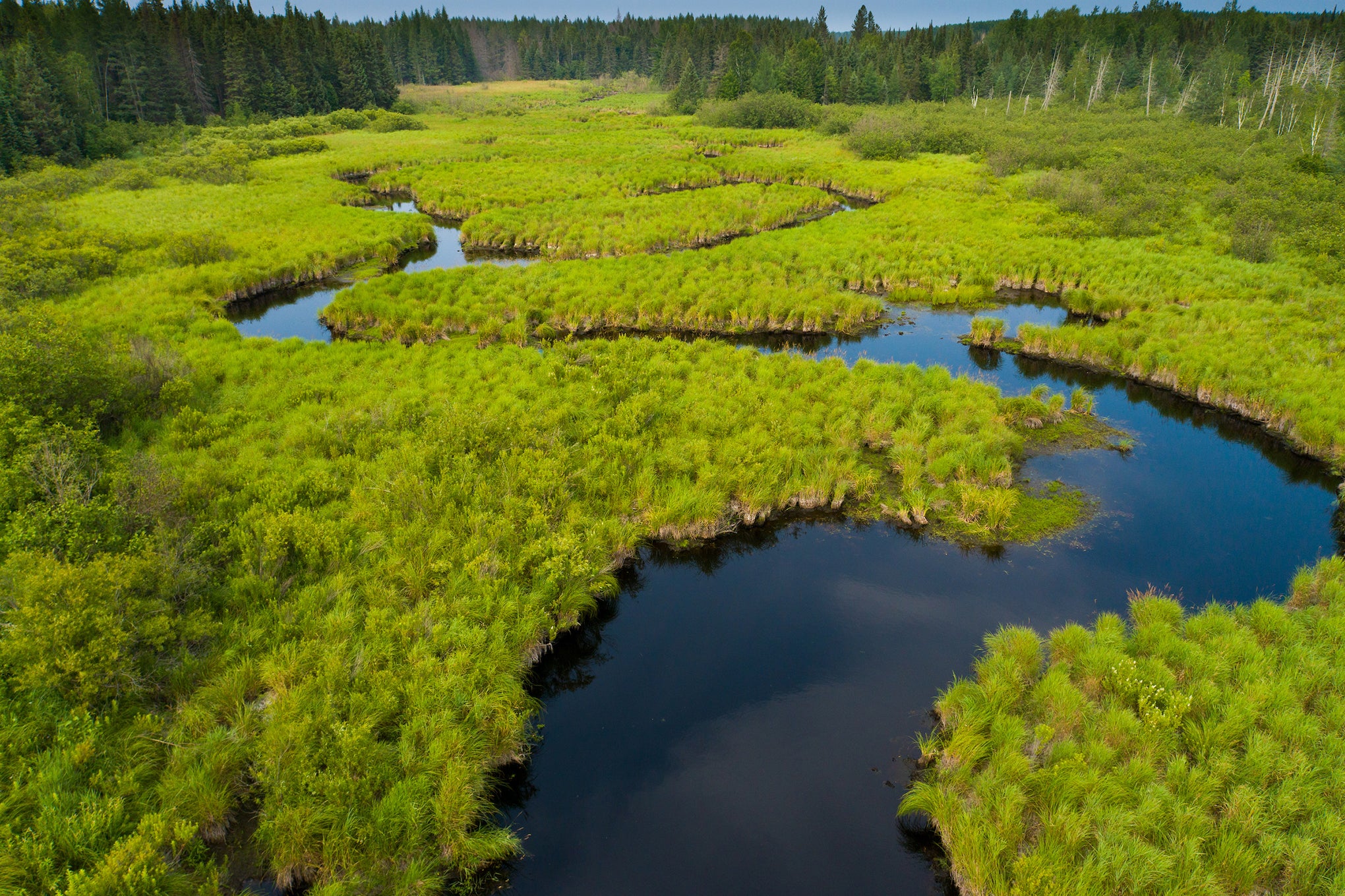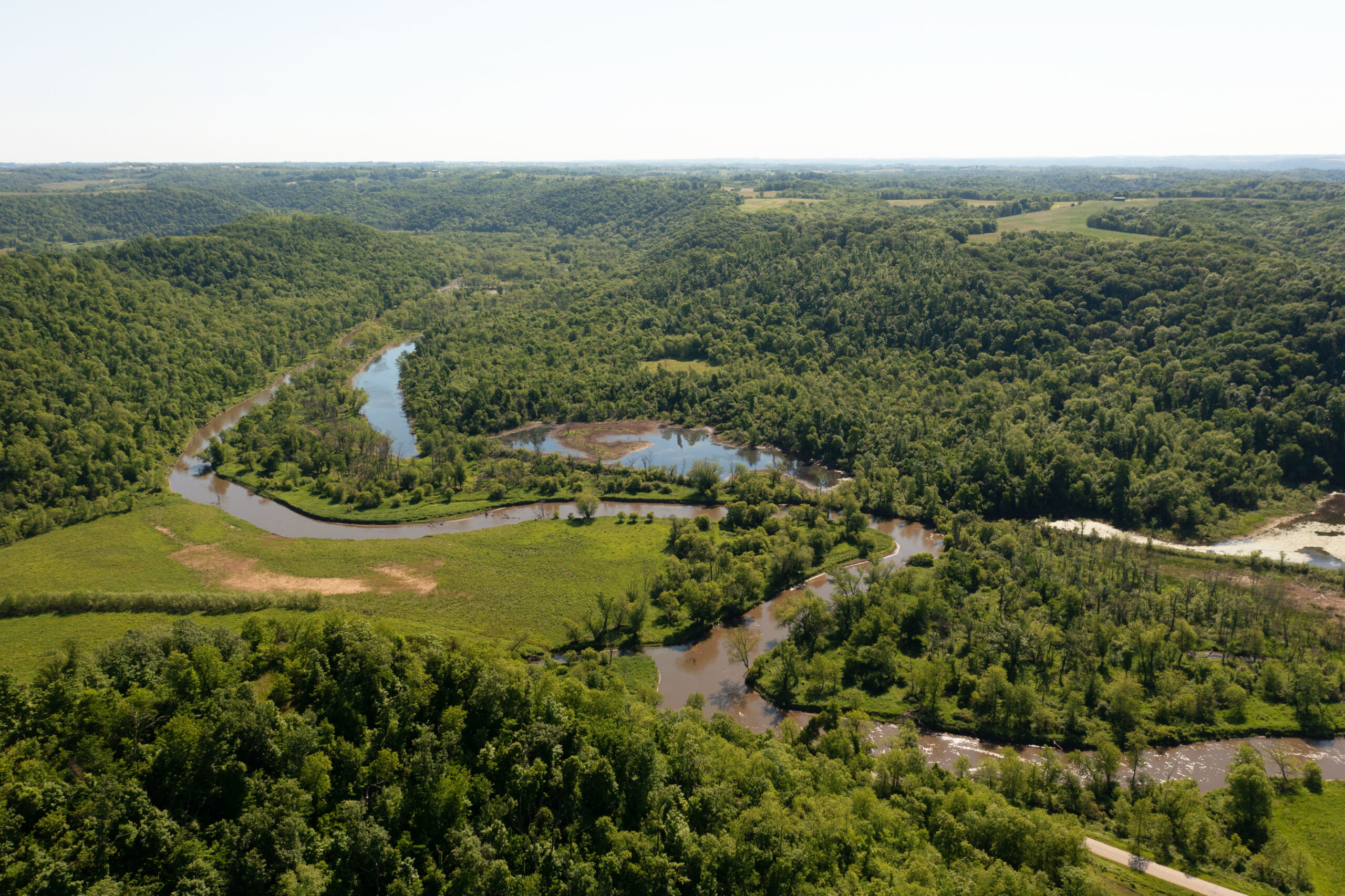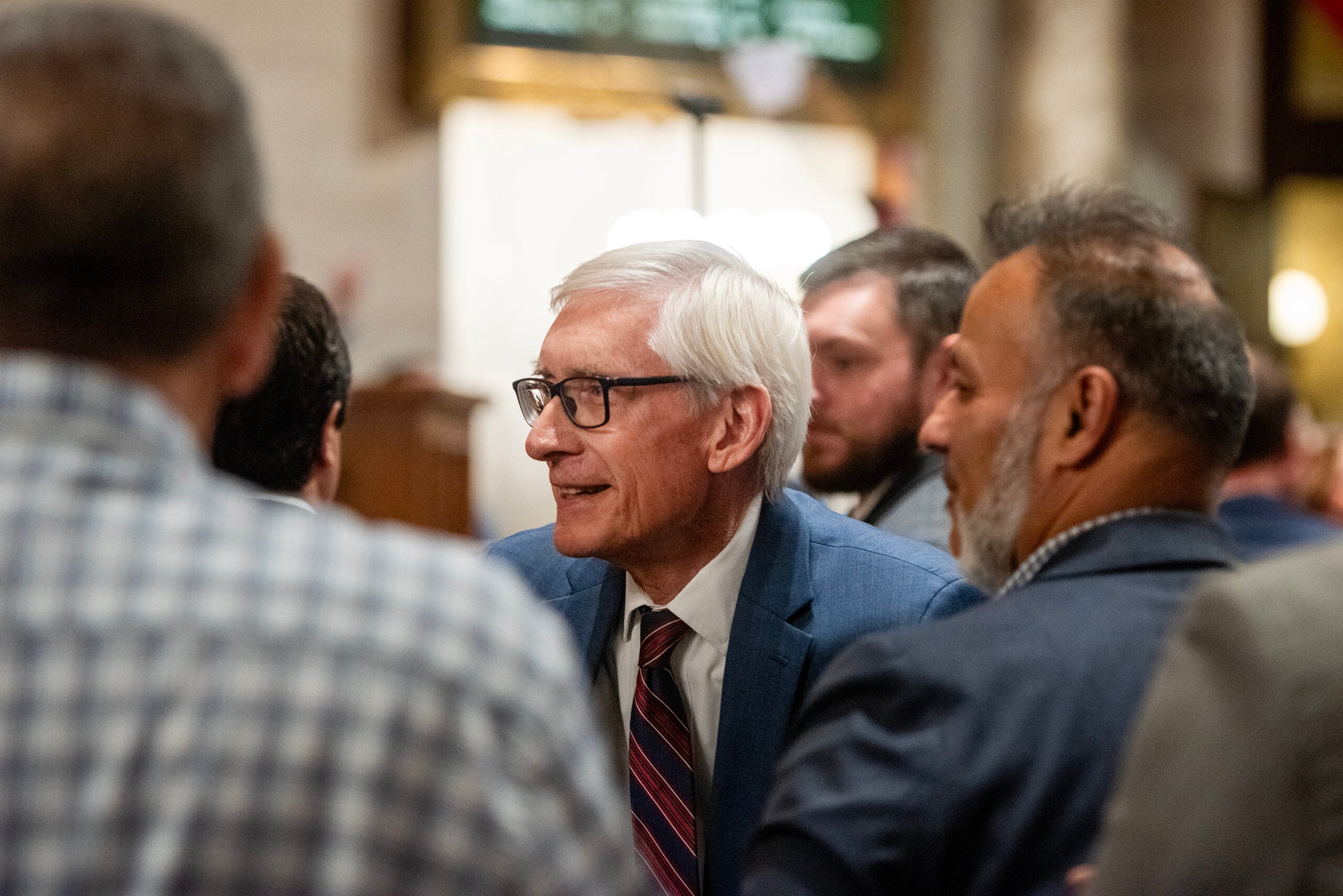Land conservation groups say they expect to see more funding requests under the state’s land purchase program now that the Legislature’s finance committee can’t legally block conservation projects.
At the same time, Republican lawmakers say the decision has placed the future of the program in jeopardy.
The Wisconsin Supreme Court ruled 6-1 earlier this month that certain statutes governing the Knowles-Nelson Stewardship Program unconstitutionally authorize the legislative committee to block spending of funds the full Legislature had already earmarked for land purchases.
News with a little more humanity
WPR’s “Wisconsin Today” newsletter keeps you connected to the state you love without feeling overwhelmed. No paywall. No agenda. No corporate filter.
The decision came after Gov. Tony Evers sued leaders of the Republican-controlled Joint Committee on Finance for violating the separation of powers through legislative vetoes of 27 projects since 2019. Charles Carlin, director of strategic initiatives for Gathering Waters, called the committee’s process an egregious overreach. He said the ruling will spur more requests for funding.
“I think what we’re going to see in the next couple of years going forward is so many conservation organizations really re-engaging with the Stewardship program and just utilizing it to its maximum potential,” Carlin said.
Under the provisions the court declared unconstitutional, lawmakers could raise anonymous objections to Stewardship purchases through its passive review process, leaving projects in limbo by failing to hold hearings on them. That amounted to a “pocket veto” of projects, including a $15.5 million conservation easement for the Pelican River Forest.
The committee eventually voted to kill $4 million in Stewardship funding for the largest conservation project in state history, but Evers later went around lawmakers to finalize the purchase with federal funds.
Prior to the ruling, some conservation groups say they only requested Stewardship funds below a $250,000 threshold to avoid triggering the passive review process and a legislative veto from the committee.
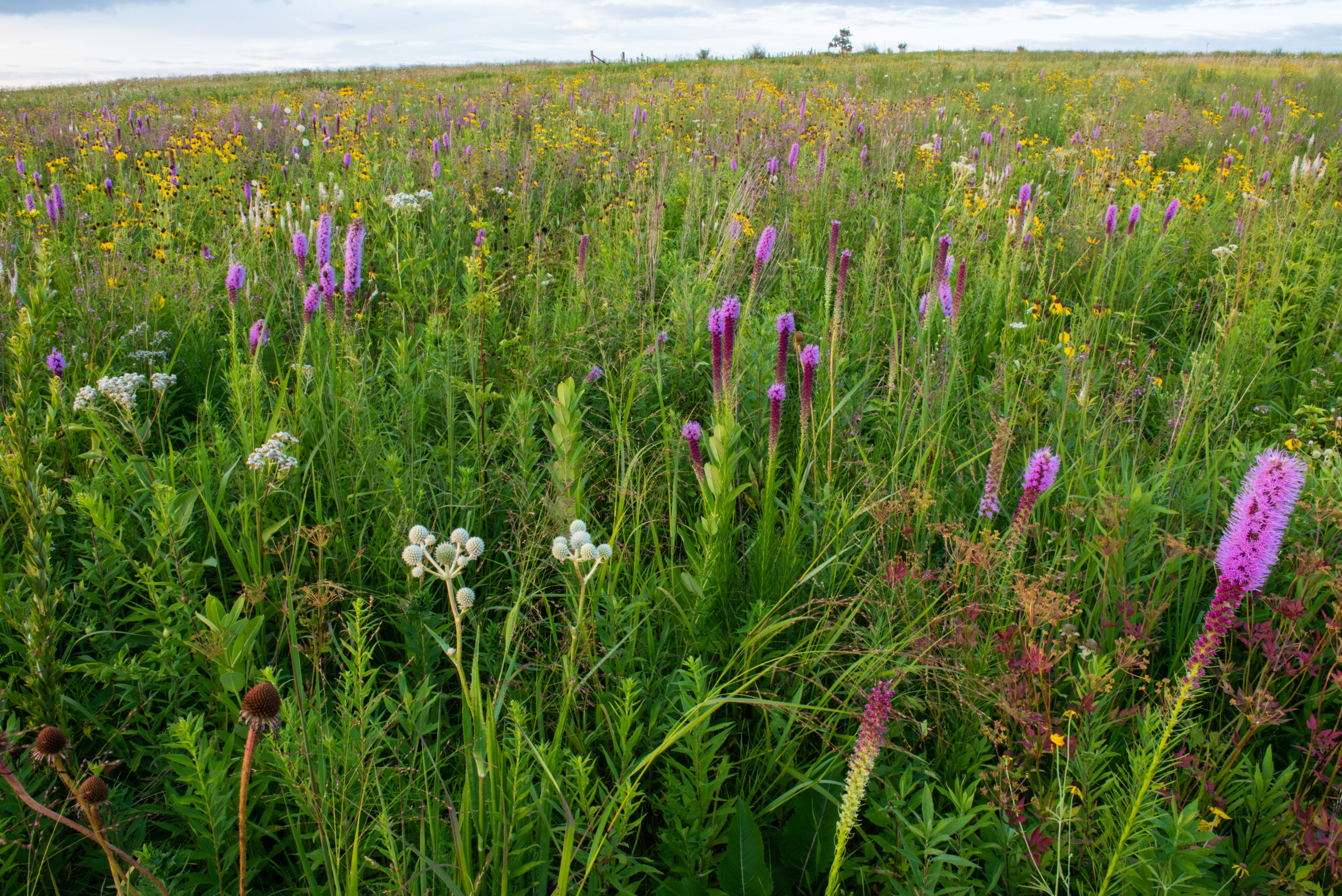
Debra Behrens, executive director for the Viroqua-based Prairie Enthusiasts, said the group chose to apply for $249,000 in Stewardship funding as part of adding 350 acres to its Mounds View Grassland site between Barneveld and Blue Mounds.
“We made the decision to accept the $249,000 from Knowles-Nelson instead of going for full funding because deals were getting held up at that time, and we needed to be able to close on the project,” Behrens said.
She said that meant spending more time on the project and raising $3 million to protect the land. Behrens said the recent ruling gives her group the confidence to move forward with another large project in Iowa County that may cost around $5 million. She said they hope to use Stewardship funding to pay for half the project’s cost.
“But if we were looking at that project as having to just get that minimum, below the $250,000 threshold, I’m not sure we could consider taking it on,” Behrens said.
Wisconsin had become a national outlier in the authority that it gives to legislative committees, according to Miriam Seifter, a UW-Madison law professor and co-director of the State Democracy Research Initiative. That’s particularly true of the Joint Committee on Finance. The logic behind the ruling could apply to 120 separate approval or veto powers assigned to the committee.
“The court’s decision clarifies that, once the legislature appropriates money to the executive branch, the legislature cannot block spending decisions,” Seifter said. “Instead, the legislature’s role is limited to things like oversight or audits, or to passing a new law — with input from the full legislature, not just a small group of committee members.”
Steph Tai is also a UW-Madison law professor and associate dean for education and faculty affairs at the Nelson Institute for Environmental Studies. They said the ruling gives more free rein to agencies. Tai noted the governor and the Wisconsin Department of Natural Resources have more authority to manage the Stewardship program in the way they see fit.
The committee’s Republican co-chairs Sen. Howard Marklein and Rep. Mark Born declined to comment further on the ruling. They pointed to previous remarks in which they said the provisions struck down had ensured taxpayer resources were spent wisely and allowed local input.
Sen. Mary Felzkowski, R-Tomahawk, sits on the Legislature’s finance committee. She said it’s unfortunate the committee no longer has oversight of Stewardship purchases.
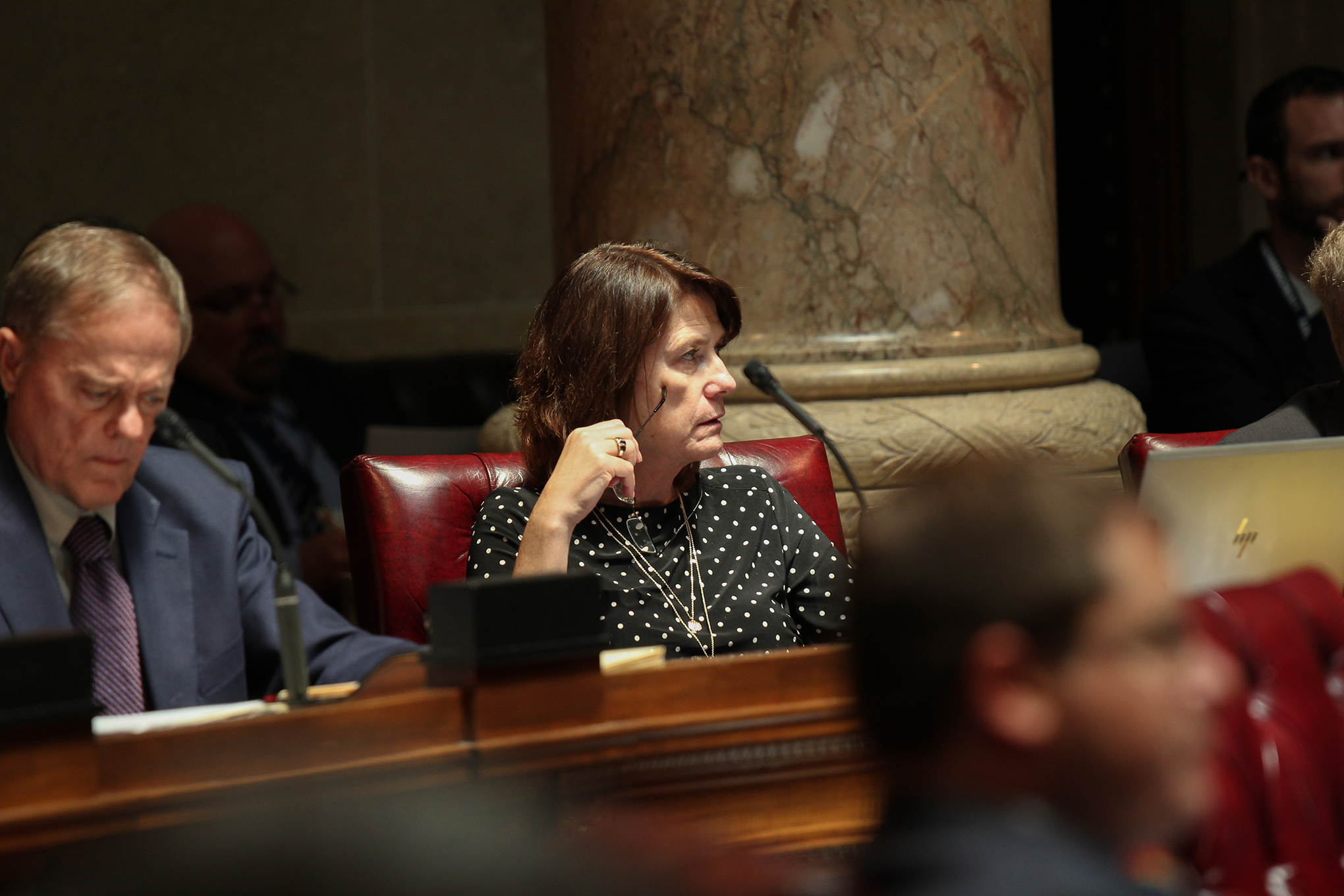
She noted the DNR failed to forward local resolutions of opposition to the Natural Resources Board when it voted to approve the easement for the Pelican River Forest. Without the committee, Felzkowski argued, some communities wouldn’t have had a voice in the matter despite broad support for the project.
“I think if you take anything out of this decision, it’s the fact that we have four liberal activists on the court, and they’re just hand-picking and fast-tracking certain petitions. And by doing that, they’re putting the Stewardship program in jeopardy,” Felzkowski said. “I have colleagues who do not want to reauthorize it. I have colleagues that do want to reauthorize it. I think it’s going to be very interesting where that ends up.”
She wondered whether lawmakers should go so far as to require legislation for land purchases. Supporters counter the Stewardship program has a long history of bipartisan support.
Felzkowski has long voiced concerns that land purchases under the program take private lands off the tax rolls in northern Wisconsin and contribute to the state’s debt. Figures provided by the Legislative Fiscal Bureau show around $596 million in debt payments currently remain as of January this year, including principal and interest.
The Stewardship program is funded through 2026 at roughly $33 million, including $8 million in cash and $25 million through bonding. Felzkowski said she thinks the state should end borrowing money for the program.
She also believes land purchases should be made closer to urban areas in southeastern Wisconsin, saying it’s unlikely youth from Milwaukee would be able to utilize lands hundreds of miles away in northern Wisconsin.
“If we’re going to continue down this road of purchasing land, I think we need to start doing it by our population centers and take a real hard look strategically at where this land is going to be purchased,” Felzkowski said.
She also called groups claims about reducing Stewardship requests “a bunch of bull—-” and said relatively few projects were killed in the last decade. Carlin contended the land trust community has only been able to use about $3 million of the funds available for land purchases each year.

Ruling could affect whether money is released from PFAS trust fund
Beyond the Stewardship program, Felzkowski declined to comment about how the ruling may affect $125 million set aside under a PFAS trust fund. The Legislature’s finance committee has declined repeated requests from Evers to release the funds that were set aside under the current state budget a year ago.
“We’re still looking at all the different ramifications around that,” Felzkowski said.
The committee’s GOP co-chairs have cited legal risks of releasing the funds after Evers vetoed a Republican bill to address PFAS. The governor previously said he’s considering whether to file a lawsuit over the funding.
Tai with UW-Madison said it would seem that any attempt by a committee to veto an agency action would be unconstitutional under the ruling.
“Arguably, the Legislature could still fight that and bring that to the Wisconsin Supreme Court,” Tai said. “But using the reasoning of this case, it would seem like the Legislature can’t veto that either.”
The court directed parties in the case to submit briefs on other issues that have yet to be taken up. That includes the authority of other committees to veto pay raises for Universities of Wisconsin employees and administrative rules proposed by agencies. Those briefs are due by July 26.
Wisconsin Public Radio, © Copyright 2025, Board of Regents of the University of Wisconsin System and Wisconsin Educational Communications Board.

